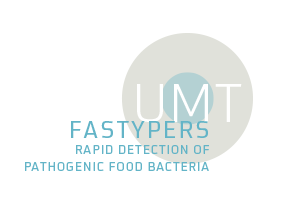
Coordination
Partners
Objectives
Listeria monocytogenes and Salmonella spp. are two major pathogens at the border between humans, animals and the environment. Food can be contaminated through animal and plant raw materials or in the production environment. These two strains of bacteria are capable of multiplying or surviving in products throughout the food chain and resisting cleaning and disinfection procedures.
The purpose of the Actia Fastypers Joint Technological Unit is to:
- develop a better understanding of how these two pathogenic bacteria adapt, enabling them to survive in slaughterhouses and processing plants;
- identify the underlying genetic causes.
The programme of this Joint Technological Unit, based in Maisons-Alfort, began in January 2022 for a five-year period.
Actions
Research on genetic markers that characterise the adaptation of strains in the dairy and pork industries.
Using genomic databases of Listeria monocytogenes and Salmonella spp. strains from collections and both industries, bibliographical studies, phenotype studies, and genomic studies such as the GWAS (genome wide association study) to determine:
- markers of the adaptation of strains in processing plants and their resistance to biocidal products;
- the ability of strains to form biofilms.
The development of innovative, rapid and specific molecular tools for the Listeria monocytogenes and Salmonella spp. strains.
These tools must, in a single analysis, enable:
- the identification of the L. monocytogenes and Salmonella spp. strains in the dairy and pork industries;
- an understanding of their capacity for adaptation and resistance to biocidal products;
- an evaluation of the risks represented by these strains.






